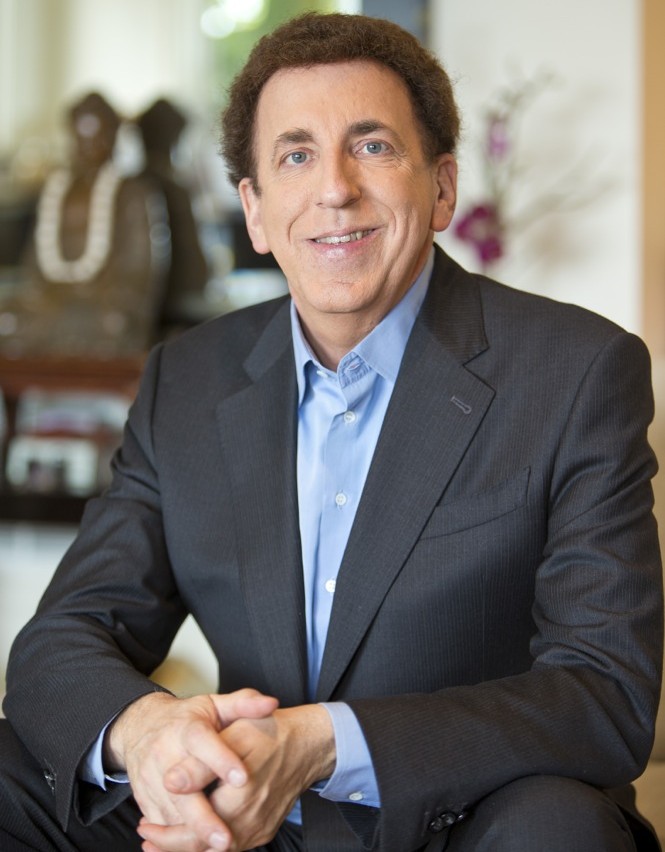
What is the Best Way to Regain Muscle Mass?

by Dean Ornish, MD.
Photo Credit: Tim Cigelske, via Flickr Creative Commons
Strength training, yoga, and exercise are the best ways to regain muscle mass. All these elements are part of the Ornish Lifestyle Medicine program. (Intensive Cardiac Rehabilitation) Please consult our stress management and fitness section on our website for more information.
You might consider working out with heavier weights and increasing your exercise.
You might consider working out with heavier weights and increasing your exercise. If you’re still losing muscle mass, ask your doctor to make sure you don’t have a malabsorption syndrome.
Contributed by
Better Health Begins With You...
Have something to contribute?
-
Judy Davis December 25, 2014
Thanks so much and God bless you
-
Judy Frankel December 26, 2014
I’m 30 pounds overweight.
Blood lipids off balance. Both brothers had heart attacks in past six months. I’m 73, female.
How do I follow your program (high carbs) without gaining more weight? I want to lose weight.
Thank you. -
Rachel Lehmann-Haupt January 5, 2015
Hi Judy:
In Dr. Ornish’s Spectrum book he writes:
“Dr. Atkins was partially right in saying that too many “bad carbs” such as sugar, high fructose corn syrup, white flour, white rice may promote weight gain and chronic diseases for reasons described below. There are clear benefits to reducing the intake of refined carbohydrates, especially in people who are sensitive to them.
So, his diagnosis was partially correct: too many refined carbohydrates can be unhealthful. But his prescription was wrong. The solution is not to go from refined carbohydrates like pasta to pork rinds and from sugar to sausage, but to substitute refined bad carbs with unrefined good carbs.
Good carbs include fruits, vegetables, whole grains, legumes, nuts, and soy products in their natural, unrefined forms. Because these good carbs are unrefined, they are naturally high in fiber as well. The fiber fills you up before you eat too much. For example, it’s hard to get too many calories from eating apples or whole grains, because apples are naturally low in calories and high in fiber, which causes you to feel full before you consume too many calories. “ -
Richard Zomnir December 26, 2014
Dr. Ornish, I am 66 and in excellent health (5’10” at 160 lbs.). I have done the P90X workouts for 5 years. My wife and I follow a whole food, plant based diet and enjoy the benefits of feeling great. I see a local physician who consistently tells me my protein levels are too low. I get my blood checked at Quest Labs twice a year. I probably consume 60-80 grams of protein as day. Lots of beans and greens but no meat or fish. What do you recommend as a minimum daily protein requirement? Thank you for your help! We’ve enjoyed your books and website.
-
Rachel Lehmann-Haupt January 5, 2015
Thanks for your question. Here’s what Dr. Ornish has to say on the topic. https://www.ornish.com/zine/i-worry-a-bit-about-getting-enough-protein-on-the-reversal-program-what-is-solid-advice-on-daily-protein-intake/
-
Douglas Anderson December 27, 2014
Dr. Dean- I sent a question about what amounted to the Paleo popularity, despite little to no respectable research on coronary/BP/diabetes (etc) effects. I assume it’s a somewhat boring question at this point for you. However, I’d still be interested in your thoughts given the wide acceptance that diet has manifested, despite being opposite the vegan diet, regarding fats, meat protein, grains.
Thanks, Dean
Douglas Anderson. -
Reba Page January 8, 2015
I am trying to follow the program described in The Spectrum, aiming to reverse heart disease (especially lower LDL cholestererol levels). The intro to your book notes that Medicare supports some of the costs of enrollling in a program based on your research. Can you direct me to specific programs in the Boston area (Arlington)? I think I would make better progress by being part of a group.
Thanks. Reba
-
Rachel Lehmann-Haupt January 9, 2015
The Dr. Dean Ornish Program for Reversing Heart Disease is the first integrative lifestyle program for reversing heart disease and other chronic conditions that Medicare is covering under the specially created category of ‘Intensive Cardiac Rehabilitation’. The Ornish network is growing rapidly, including national partnerships with many private insurers such as Highmark Inc, WellPoint and HMSA. Some of these private insurers are also reimbursing for patients who have risk factors for coronary heart disease, and other conditions such as diabetes and early prostate cancer. Browse our locations directory to see Ornish Program sites we may have near you.
-
Mark Nunes June 13, 2015
Dr Ornish,
I’m following the strictest version of your plan. I would like to know if i can stick to the program, but skip the dairy and egg whites and go purely vegan?
also i strength train fairly intense and have a vegan based protein shake after my work outs…is that a problem? Thank you for all the good work you do. -
Jim Tresh April 17, 2017
Hi Dr. Ornish,
I am a successful patient from your program in Sarasota, Florida. I have two questions. I noticed that nuts are mentioned and seem to be recommended in some of the readings. In the ;program we were advised to avoid all nuts, with the exception of eating one half of a walnut per day. Has that changed?Secondly, someone commented to me that abstaining from all meat can cause hair loss. That sounded ludicrous to me, but I want to double check with you.
Please adivse.
Thank you.
Jim
-
Rachel Lehmann-Haupt May 10, 2017
Thanks for your question. I’m including a link to our updated guidelines about nuts and seeds. https://www.ornish.com/zine/new-scientifically-validated-guidelines-nuts-and-seeds/
I’ve passed along your question about hair loss.
Up Next for You


Yoga Offers These Four Keys to Your Happiness






